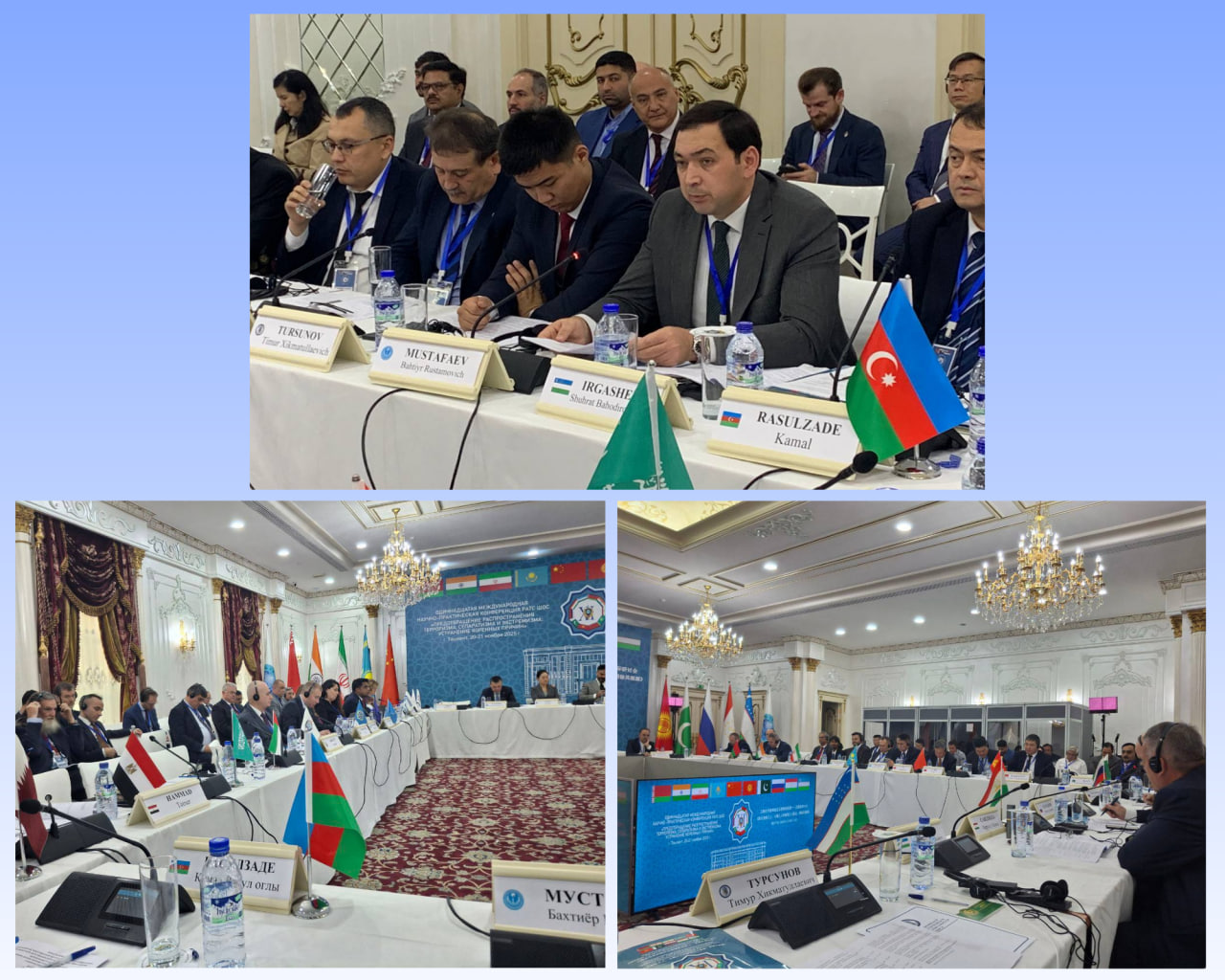Bakhtiyor Mustafayev: Uzbekistan demonstrates commitment to a comprehensive and humanistic approach to deradicalization

On November 20-21, the 11th international scientific and practical conference of the Regional Anti-Terrorism Structure of the Shanghai Cooperation Organization (RATS SCO) was held in Tashkent. The conference was titled: "Preventing the Spread of Terrorism, Separatism, and Extremism: Eliminating Root Causes."
The event brought together a wide range of experts, heads, and coordinators of relevant departments from international and regional organizations, including the UN, Interpol, EAG, CICA, CIS, and CARICC. Members of the diplomatic corps, law enforcement agencies, and academies from SCO member states, observer states, and dialogue partners also participated.
Bakhtiyor Mustafayev, Deputy Director of the ISRS, presented a report at the session "Problems of Deradicalization and Protecting the Younger Generation from the Negative Influence of Destructive Ideologies." He emphasized that addressing radicalism among young people requires not only forceful measures but also systemic socioeconomic and educational measures.
The expert noted that Uzbekistan views social justice and economic sustainability as powerful factors in preventing extremist ideas among young people, who make up more than 60% of the country's population.
To this end, the national Strategy "Uzbekistan 2030" sets priorities for halving poverty by 2026 and creating employment for 400,000 young people. The development of the IT sector alone, investment in which has increased tenfold over the past five years, has created thousands of new jobs, significantly increasing youth employment.
“The use of socio-economic measures is not an alternative, but a fundamental element of a comprehensive system for countering extremism,” he added.
B. Mustafayev emphasized the role and importance of the five-tier Islamic education system established in Uzbekistan in fostering "ideological immunity" to destructive ideas. Currently, the country operates three higher education institutions and 11 secondary specialized educational institutions where students gain knowledge of the traditional humanistic values of Islam.
At the same time, media literacy programs are being implemented, reaching more than 1 million students and schoolchildren annually, as approximately 80% of young people first learn about radical ideas from the Internet.
As an ISRS representative notes, statistics demonstrate the effectiveness of the comprehensive measures. From 2022 to 2024, the number of offenses related to extremism among youth decreased by 40%. Ongoing monitoring and legal regulation make it possible to effectively identify and legally prevent the dissemination of extremist information.
In conclusion, the expert emphasized that the Republic of Uzbekistan, recognizing the scale of threats and its responsibility in the regional security system, clearly demonstrates a comprehensive and humane approach to countering terrorism and extremism. He also called for further close cooperation within the RATS SCO to harmonize best practices and ensure a secure future.
Previous

On November 20, 2025, an off-site session of the Primakov Readings International Forum, entitled "Central Asia: Global Challenges for Regional Development," was held in Tashkent. This was the third meeting held outside the Russian Federation and the first time it was held in a Central Asian country.
21.11.2025Next

On November 25, Institute for Strategic and Regional Studies (ISRS) hosted a meeting between First Deputy Director of the Institute Akramjon Nematov and Head of the Asia/Pacific Department of the Konrad Adenauer Foundation Christian Echle.
25.11.2025





